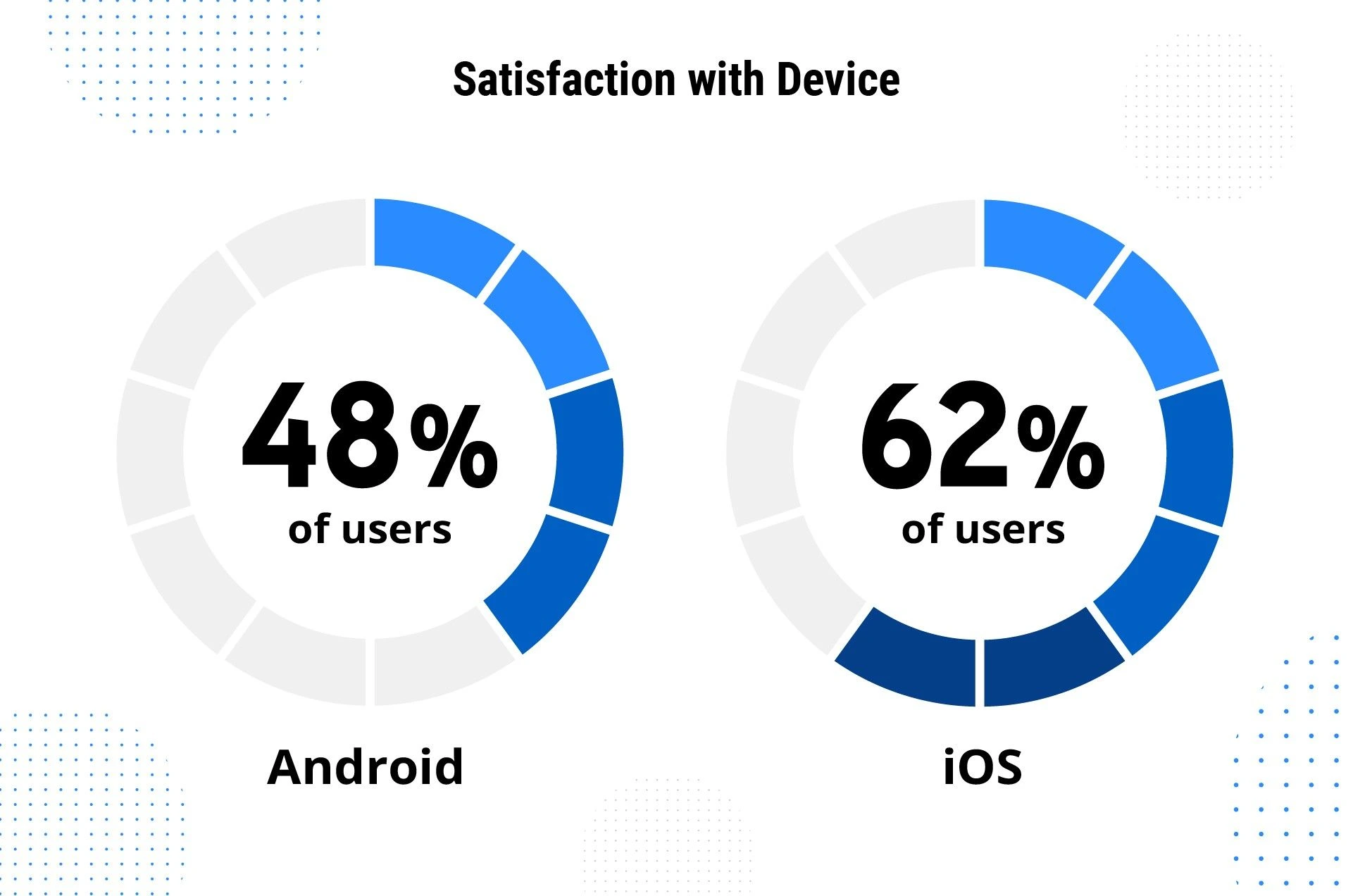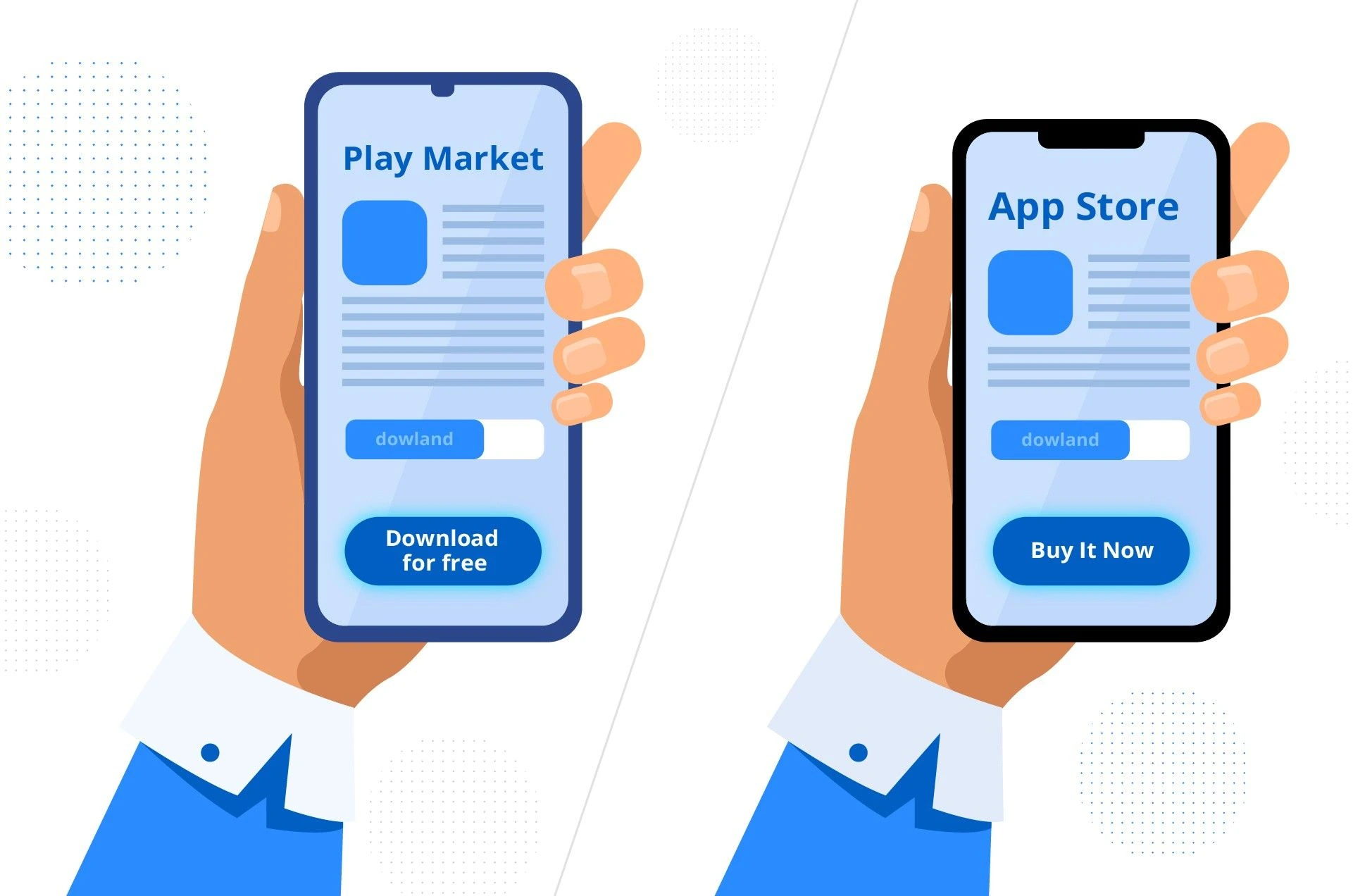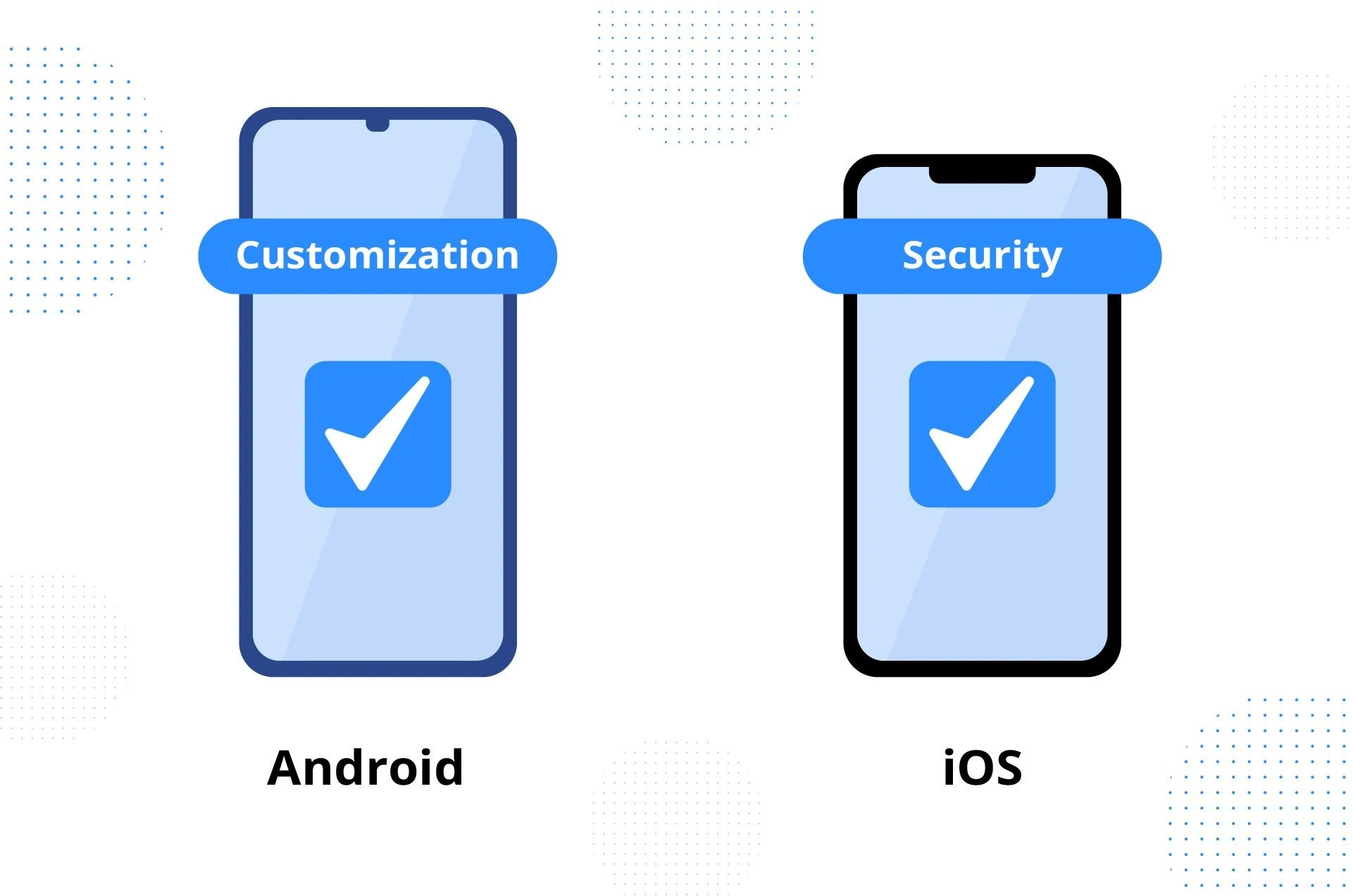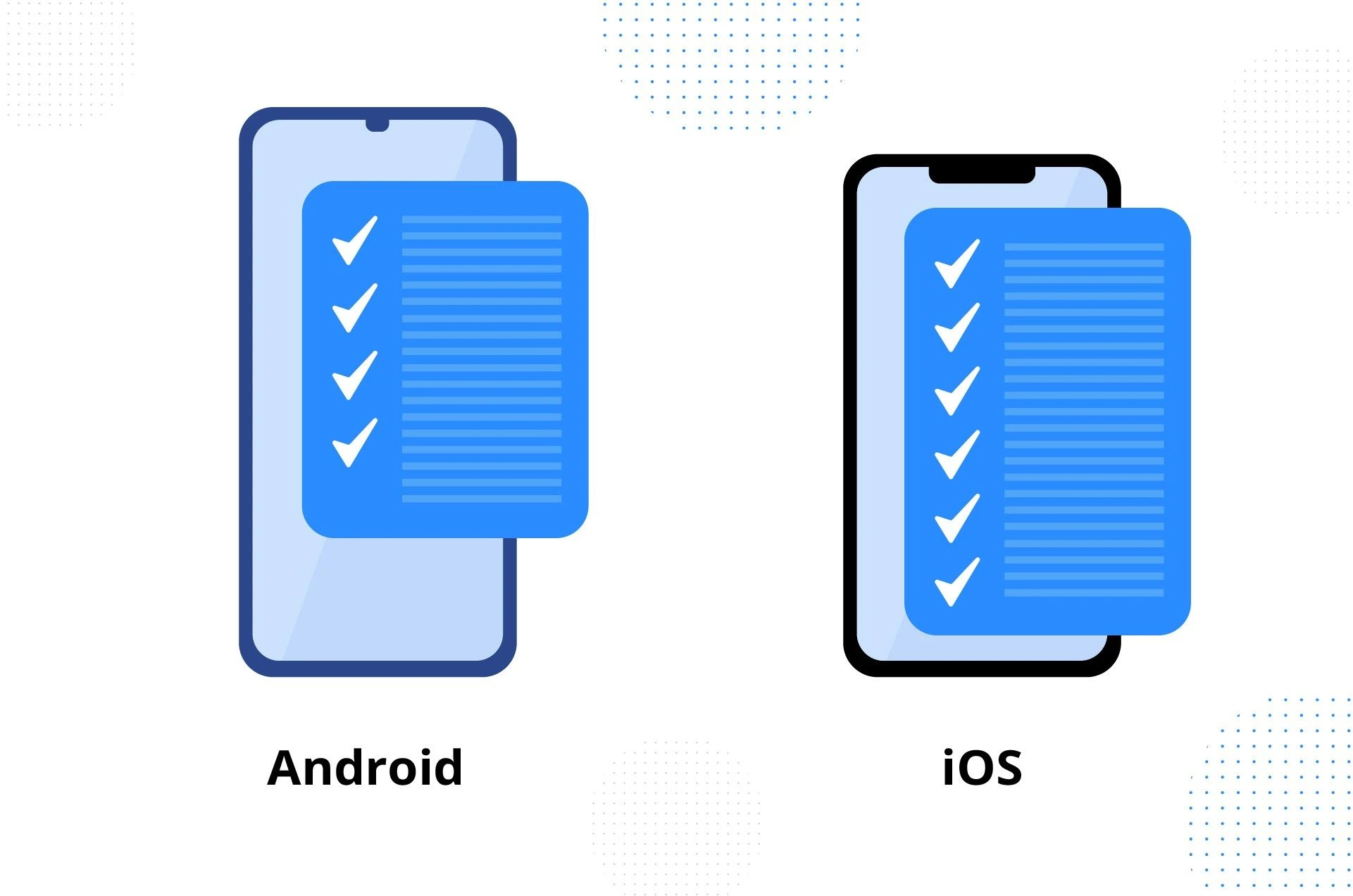iOS vs Android Development: Which Path to Choose for Your First App?
Table of contents
iOS vs Android Audience
- Age
- Household Income
- Engagement
- Number of Media Users
- Geography
- Device Loyalty
iOS vs Android App Development Cost
- Code
- Standardization
iOS vs Android Revenue
iOS vs Android App Customization
iOS vs Android App Release
The Bottom Line
Even though the simultaneous development of mobile applications for iOS and Android is a common practice, many startups prefer focusing on one platform for their first app, and for good reason. The creation and release of two apps at once is quite risky and expensive, so launching the app for one platform, then estimating its success, taking into account possible improvements, and evaluating the targeted audience seems like a good idea. But how to decide which platform will be the best pick: iOS or Android?
This article is created with the goal to show you the pros and cons of developing the first app for one of these platforms. We will compare iOS to Android in terms of the platforms’ audiences, development costs, monetization, customization, and release issues, so you can get a clear picture of which suits your first app development expectations most, iOS or Android.
iOS vs Android Audience
Android and iOS audiences are not equal, and when considering the development of a mobile app for one of these platforms, it is wise to take into account how they differ, and base your decision on the correlational matches between a certain platform’s users and your targeted customers.
*Most of the data provided below is borrowed from a study published by UCSI University.
Age

There are more younger people, aged 18-24, among iOS users. This young audience makes 19% of all iPhone users. In relation to Android users, this number is 16%.
Household Income
Also, there are nearly twice as many iOS users with household income estimated at $100,000 plus, than those having the same level of income among the Android platform audience. In percentage, this gap is shown by 41% of iOS vs 24% of Android users.
Engagement
When it comes to the engagement with content, iOS users are known for being more active. For example, when compared to those using Android, they are 10% more likely to spend time in social networks, 7% more likely to access various news channels, and 15% — to shop online.
Number of Media Users
Nevertheless, because the market share for Android in 2019 was 86,1%, while the iOS one is much lower — 13,9%, there are much more Android users worldwide than those of iOS.
Geography
Even though there are more users of Android globally, iOS is a more popular option in Western Europe, North America, and Australia.
Device Loyalty
iOS users show higher rates of satisfaction with the devices they use, and this results in higher rates of device loyalty. In numbers, it looks as follows:

In addition, it is worthy of saying that 80% out of all iOS users have previously owned an iPhone, which signifies a high Apple’s retention rate.
For sure, there are many more criteria you can use to compare the audience of iOS and Android, such as gender, education, job position, etc. So when choosing a platform for your first mobile app, make sure you have considered all the important to your business details.
iOS vs Android App Development Cost

Now, let’s imagine we need to develop two similar apps with the same functionality for these two platforms. Would it be more cost-effective to invest in Android or iOS app development? If not digging too deep, the latter wins in terms of both time needed for development and money spent on it. There are two key reasons why the creation of apps for iOS is less expensive than for Android.
Code
There is a difference in primary technologies for the development of iOS and Android apps. For the first one, Swift becomes the most popular option, while the pick for the second one is Java — the language that requires longer lines of code.
Standardization
Because Android lacks standardization, the development for this platform often results in the need to fit different devices. When it comes to iOS, the closed ecosystem limits the number of devices and operating systems, contributing to faster development.
iOS vs Android Revenue

While subscription plans can be offered in both the App Store and Google Play, it is important to know the difference in behavioral patterns of iOS and Android audience. In this way, it will be easier to make a decision on a platform to choose for your first app, especially if monetization is among your key priorities. So here are some facts to consider:
- iOS users are more likely to pay for the app and make in-app purchases.
- Even though there are fewer downloads in the App Store, it generates twice as much revenue as the Play Market.
- Nevertheless, when it comes to the revenue from utility apps, Android beats iOS.
iOS vs Android App Customization

Back in what was mentioned earlier about the close ecosystem of iOS and the open-source nature of Android, it becomes evident that the latter wins in terms of possibilities for customization. So if you want your app to have some unique features and functions, the platform to start conquering the mobile market is Android.
Still, we have to say that the open environment offered by the Android platforms has one significant disadvantage: it opens up space for pirate apps and malware. In contrast, the closed ecosystem of iOS contributes to higher security. This fact is worthy of your attention in case you are planning to launch an app targeted at the enterprise market. In case it is so, better choose iOS.
iOS vs Android App Release

As we have already discovered, iOS app development services generally takes less time than the creation of a mobile app for Android. But the platforms switch places when it comes to the time needed for release. It is so because developers must pay more attention and spend more time on compatibility, bug fixing, and issues associated with users using older OS.
In other words, in comparison to Google Play, the App Store has not just stricter rules, but also higher quality expectations. Whether you see it as a good thing or a bad thing, it contributes to more issues arising at the release stages.
The Bottom Line
Considering all the pros and cons of mobile app development for iOS and Android, there is no wonder why in the most cases, startups decide to go with iOS for their first app. This platform allows creating secure apps at a reasonable price and in the shortest time. Also, advantages of iOS app development include higher perspective for monetization and better chances to conquer the enterprise market.
Nevertheless, the Android platform also attracts a lot of attention, especially when the app is planned to be focused on the Asian market or the targeted audience is defined as ‘global’. The key advantages of Android app development include fewer release issues, more flexibility in terms of unique features and functions, and higher chances for monetization success in the utility apps.
For sure, there are plenty of other factors you can consider before making a decision on which platform to choose. Still, you can always contact our professionals for a free consultation and find out which option is better for your particular app: iOS or Android. So don’t hesitate to ask questions. We are always here to help you with turning your tech ideas into reality.
Published on Jul 31, 2023





